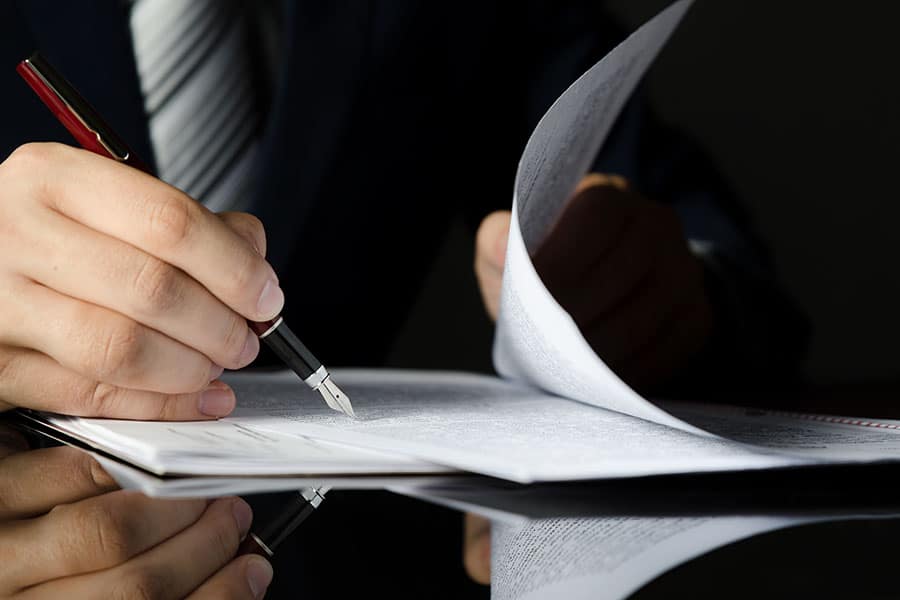The process of handling a deceased’s estate can be long, but there’s still more to consider even after probate is closed. Whether you’re an executor, beneficiary, or another interested party, you’ll need to understand the legal process of distributing a deceased’s assets.
What Does Probate Mean?
Probate is a legal process of handling assets after death. Regardless of if the person had a will or not, it is likely that you may still end up in probate court. There are many things that need to be settled legally.
Paying any outstanding debts to creditors, validation of the will, and more need to be done before the probate can be closed. You’ll need to complete the following actions before you can close an estate.
- Validating the will, which can become more complicated if there is more than one will
- Creating an accounting record of the estate
- Notifying creditors of the decedent’s passing
- Paying off creditor claims and other outstanding debt, some assets might need to be sold first
- Locating the beneficiaries of a will, if there was no will you’ll need to locate the heirs of the estate
- Distributing assets to the beneficiaries or heirs
- Closing the estate
What Does It Mean to Close Probate?
Closing probate is the next step after the executor, the person designated in charge of the estate administration in the will, has completed all of their duties. Before the executor can close probate, they need to provide a final accounting of the estate.
In this document, they will list all of the assets, debts that were owed and paid from the estate, and taxes or other expenses of the estate. The beneficiaries or heirs will need to approve the final accounting record before probate can be closed and assets can be distributed.
If they disagree with the document or the handling of assets, they have a right to dispute it. Once approved, the executor can file a petition to close the estate.
When the estate becomes closed, all of the remaining assets are distributed to their intended recipients.
What Happens After a Probate is Closed?
After probate is closed, all creditors and beneficiaries will have an allotted amount of time to file complaints if they believe the estate was mishandled. Under federal rules, this time frame is one year, but some states may have a longer window of opportunity.
The most common complaint from creditors is that they did not receive adequate notice of their right to claim funds for the deceased’s unpaid debts. A frequent claim from beneficiaries is that the estate was mishandled by the executor.
If no such complaints are filed, the petition to close the estate will be granted. However, the will itself can still be contested even after probate is closed.
What Happens If You Find New Assets After Closure?
If additional assets are uncovered after probate has closed, you’ll need to know the legal guidelines for distribution.
Determine If Probate is Closed
The first step after discovering new assets is to determine if the estate is already closed. If it is not, the executor can add the new assets to the estate’s accounting. However, if the estate is already closed you’ll need to read the final distribution from the original probate court.
A provision might be included detailing how to handle any newly discovered assets. If no such provision exists, further steps might be necessary.
DetermineIif the Estate Account is Open
If the bank account for the estate has not yet been closed, you can add newly discovered funds to the existing bank account. In the event that the bank account is closed, ask the bank if you need an order from the court to reopen the account. Assets that are not money, such as artwork or property, or cannot be added to the estate’s bank account may need the court’s involvement to be distributed.
Reopening Probate
Depending on the state, you may need to reopen the closed estate to properly handle the new assets. Federally, the Uniform Probate Code allows an individual to file a petition to reopen probate. Many states follow these guidelines, but some have their own legislation for how estate administration and the probate process should be handled.
In some states, you’ll need to file a new petition for probate. This new probate can have a different executor and is not bound to the decisions or complaints from the first probate.
How Come Some Probates Never Close?
Probate can be an extremely long process. Any additional delays or complications can make it take even longer. Complicated estates, estates with beneficiaries in different states or countries, or estates with difficult assets to sell can take years to handle. Contesting the will might also cause a slower process.
All of these complications can cause probate to remain open. An estate cannot be closed until it’s ready to distribute all the assets to the heirs or beneficiaries. Additionally, an executor may not know how or choose not to close probate.
Finding a Probate Attorney
Handling the probate process is difficult, doing so without a personal representative will be even more challenging. A probate attorney can help with this process. To find a legal expert to represent your interests through the probate process, call 800-874-3528.
